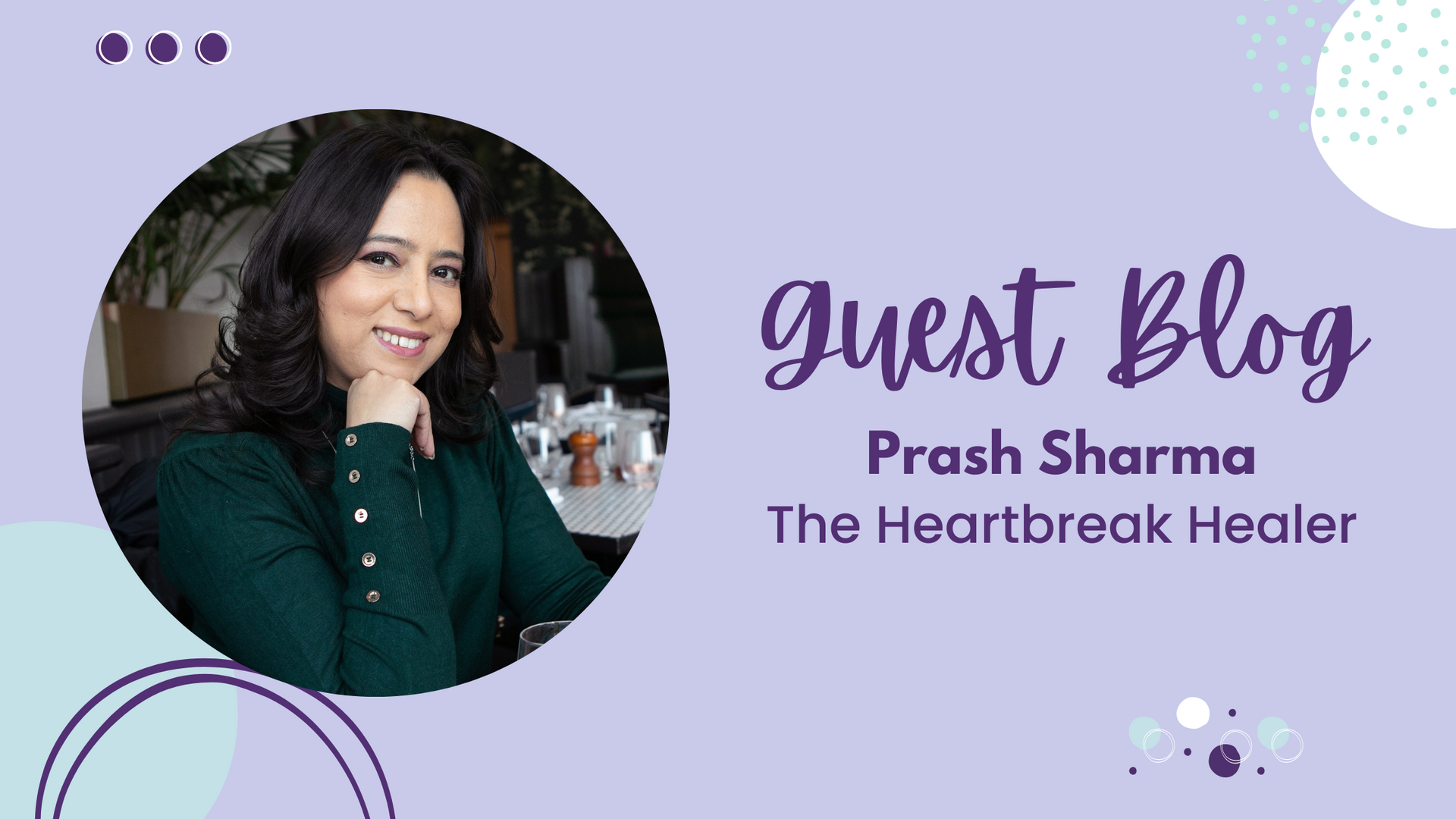Guest Blog: The Heartbreak Healer
Here at PEGS, we know celebrations can be a particular struggle for families who aren't living in a picture-perfect idealised world. Valentine's may be tricky for you - surrounded by hearts, chocolates and flowers, when the reality behind closed doors is a struggle.
So we're really pleased that friend of PEGS, Prash Sharma AKA The Heartbreak Healer, has written this fantastic blog to mark Valentine's Day. Prash has made it her life's mission to rebrand 'happy ever after' and ensure everyone understands a happy relationship begins and ends with a happy self.
Prash's focus is on those who are single this February 14th, but all of her points around self care can be applied to parents who are experiencing CPA too, so please do read on and then go and show Prash some love via her social media, which is linked at the end!

The Dark Side of Valentine's Day: Beyond the Commercialized Façade of Love
Just like every other celebration, Valentine's Day has also become highly commercialised, with companies pushing expensive gifts, romantic vacations, and fancy meals.
Everything is about profit these days – no matter the cost!
The pressure to show love and affection through consumerism has taken away from the true essence of the day, which is about celebrating and appreciating the relationships that matter the most – the love we have for us and for others!
Valentine's Day is often portrayed as a day for couples because our society puts a strong emphasis on 'being in a relationship'. This is the same society that looks down on single parents and judges every broken relationship with contempt.
Now can you imagine the stress and the pressure that this day puts on someone single – someone who is already feeling fragile?
Is it any wonder that every step you take, as a single woman, a single parent, or recently single, you feel like the biggest failure in this world? With all these messages about 'true love and celebrating love' bombarding you from every single direction – they don’t even give you a chance.
You see, if you are single and happy being who you are… if you accept yourself just the way you are, a lot of companies will go bankrupt, and they cannot let that happen.
There is too much at stake!
So how about we take back our power (it’s about time, don’t you think?) and we celebrate us this Valentine Day and beyond?
Let’s focus on self-care and self-love!
Aren’t they all singing from the hymn sheet that says, 'you cannot pour from an empty cup?'
It's time to break free from the pressure to be in a relationship on Valentine's Day (and every other holiday) and to celebrate the love that exists in all forms, including the love we have for ourselves.
Here are some ways to practice self-love and self-care:
· Treat yourself with kindness and compassion. Talk to yourself in a positive, encouraging way, and be gentle with yourself when things don't go as planned.
· Indulge in activities that bring you joy and relaxation. Whether it's reading a book, taking a bath, or trying a new hobby, do something that you truly enjoy and that helps you to recharge.
· Spend time with people who uplift and support you. Surround yourself with friends and loved ones who make you feel good about yourself and avoid those who bring you down.
· Practice gratitude and positive self-talk. Focus on the things in your life that you are thankful for and remind yourself of your strengths and accomplishments.
· Take care of your physical health. Exercise regularly, eat well, and get enough sleep. By taking care of your body, you'll be better equipped to handle life's challenges and to feel good about yourself.
· Volunteer or give back: every day is a great opportunity to show love to others by volunteering or giving back to your community. This can be a rewarding way to shift your focus away from yourself and feel good by helping others.
· Focus on self-love: Take some time to reflect on your own self-worth and all the things that make you special. Write down affirmations and read them every day to boost your self-confidence and self-esteem.
Remember, self-care is personal, and what works for one person may not work for another.
The key is to find activities that you enjoy and that make you feel good. Whether it's trying something new or sticking with a tried-and-true self-care routine, make sure to prioritize self-care and invest time in yourself.
Valentine's Day is just one day of the year, and it doesn't define your worth or happiness – what defines and determines who you are is the love you show yourself.
From my heart to yours… Happy Self-Love Day!
With infinite love and gratitude,
Prash xoxo
The Heartbreak Healer
You can connect with Prash here:





